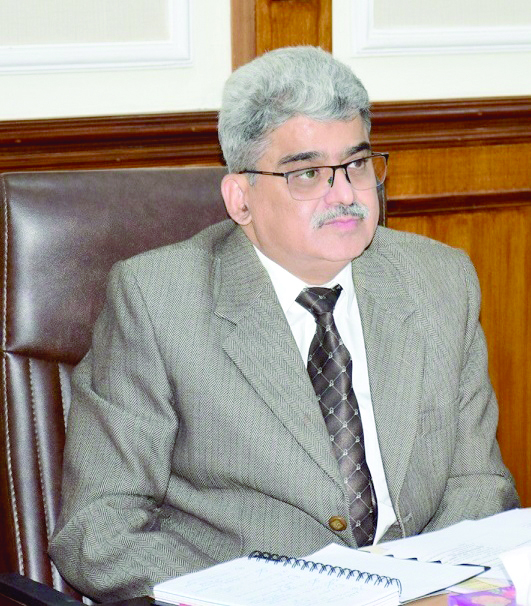SRINAGAR, MAY 30:Chief Secretary AtalDulloo chaired a high-level meeting with senior officials from the Home, Police, and Law Departments to evaluate preparations for implementing three new criminal laws recently passed by Parliament in Jammu and Kashmir.
Key officials including the Principal Secretary Home, Director General Prisons, ADGP Headquarters, Director Prosecution, Secretary Law, and Director FSL attended the meeting, with Jammu-based officers participating virtually.
Dulloo inquired about the capacity building and training of relevant staff conducted thus far, emphasizing the collaborative efforts needed for effective implementation of these laws in the Union Territory.
He stressed the importance of disseminating relevant information about the new laws among police officers and various segments of society, including women and students, for awareness. Additionally, he sought updates on logistic measures and technological upgrades required for better implementation on the ground.
The Chief Secretary also reviewed necessary amendments to be made in the Police Manual and the status of issuing different Statutory Orders (SOs) in this regard. He sought information on changes needed in post rationalization or creation, seeking clarifications from the Law Department, and integrating various portals with law enforcement agencies.
During the meeting, the Police Department outlined various initiatives planned for the smooth implementation of these laws, including capacity building, deployment of additional manpower, and technological interventions.
Approximately 6984 police personnel have been trained in training institutions, with 106 prosecutors also oriented. Furthermore, 72 officers are scheduled to attend batch-wise training programs at CAPT, Bhopal, along with 30 officers from the Judicial Academy.
Discussions also covered plans for establishing district mobile forensic units and changes to be made in Prisons, Prosecution, and other allied Departments. Committees and study groups have been formed to gain insights into these laws and frame a roadmap for implementation in the UT.
The BharatiyaNyayaSanhita, BharatiyaNagrikSurakshaSanhita, and the BharatiyaSakshyaAdhiniyam, recently notified by the MHA for implementation from July 2024, will replace the Indian Penal Code, 1860, Code of Criminal Procedure, 1898, and the Indian Evidence Act, 1872, respectively.








